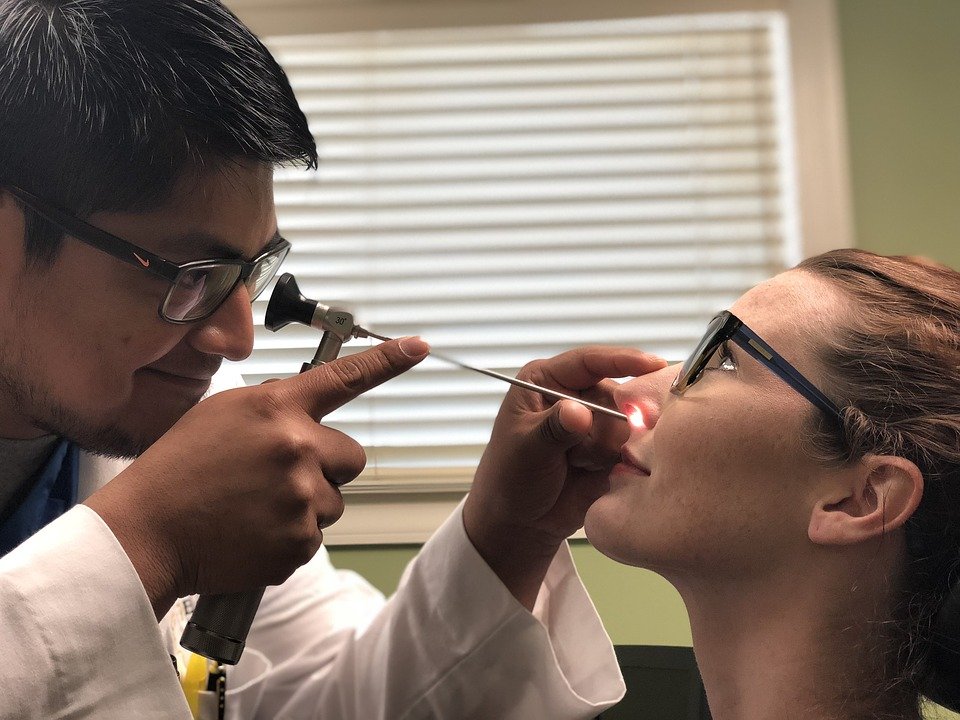
What Is Sinusitis?
Sinusitis, more commonly known as a “sinus infection,” is a condition where germs and bacteria build up in the sinuses and cause an infection. While your sinuses are typically filled with the air you breathe, certain conditions can cause them to swell or fill with fluid, eventually leading to an infection.
There’s no single root cause for sinusitis; any condition that results in nasal blockage or swelling can cause it. However, most people experience sinusitis when they contract the common cold or experience a severe, prolonged allergic reaction.
Thankfully, sinusitis is fairly easy to treat with basic medical care and, in minor cases, over-the-counter medications. In chronic or severe cases, however, surgery or specialized medical intervention is often necessary. Read on to find out more about sinusitis, its root causes, and what you can do to treat sinusitis once you have it.
A Deeper Look into Sinusitis
Your sinuses are a complex series of hollow cavities in your skull that drain into the nose. The inside walls of your sinuses have a thin layer of soft tissue known as “mucosa,” which produces a very thin layer of mucous. While scientists aren’t entirely sure why we have sinuses, the current consensus is that they help humidify the air we breathe and potentially improve our vocal range.1
In healthy individuals, the sinuses are usually empty apart from trace amounts of mucous. Since breathing through our nose requires breathing through our sinuses, the sinuses need to remain clear and unobstructed. Unfortunately, the common cold, allergies, and similar conditions can block our sinuses, resulting in a “stuffy nose.”
However, a “stuffy nose” isn’t sinusitis in and of itself—instead, it’s part of its root cause. Though a stuffy nose can come and go without much consequence, it can cause an infection (sinusitis) if it traps bacteria and germs.
What Are the Causes of Sinusitis?

While there are many ways bacteria or germs can get trapped in the sinuses and cause an infection, the leading cause is usually a blocked or swollen sinus. Of course, many conditions can lead to blocked sinuses and cause sinusitis.
. The most common causes of sinusitis include:
- The common cold, which causes acute sinus inflammation through a viral infection—i.e., not bacterial.
- Allergies or hay fever, which may cause acute sinus inflammation through either pollen, pet dander, dust mites, or some other allergen.
- A deviated septum, an off-center septum—the cartilage between your nostrils—limits airflow into one nostril and can make it easier for bacteria, viruses, and fungi to get stuck in the sinus.
- Turbinate hypertrophy, a condition where the septum’s ridges are oversized and limit airflow into the nostrils. Like with a deviated septum, the limited airflow can increase the risk of sinusitis or inflammation-related causes of sinusitis.
Types of Sinusitis
While every case of sinusitis is an infection of the sinus cavity, two distinct types are dependent on the duration and nature of the infection.
- Acute sinusitis: Acute sinusitis is the most common type of sinusitis and is mostly short-lived—i.e., non-chronic.
- Chronic sinusitis: Chronic sinusitis lasts significantly longer than acute sinusitis and may persist over time. These cases often require more advanced medical intervention than over-the-counter medications or mild antibiotics. Note that chronic sinusitis is not necessarily repeated cases of acute sinusitis; instead, it’s a single, long-lasting case of sinusitis and inflammation.
How Long Does a Sinus Infection Last?
No matter which type, a sinus infection is no fun—and everyone wants to get it over with as soon as possible. Thankfully, the majorities of cases are relatively mild and often go away within a couple of weeks without medical intervention. Generally, however, the two types of sinusitis are broken down further into four major categories by duration:
- Acute sinusitis lasts 2-4 weeks after onset.
- Subacute sinusitis, a prolonged version of acute sinusitis, lasts 4-12 weeks.
- Chronic sinusitis lasts more than 12 weeks, although this is an extreme case.
- Recurring sinusitis occurs several times throughout the year, where each case may occur for a varying length of time.
In many cases, the duration of the sinusitis can be shortened significantly through certain medical interventions, such as balloon sinuplasty, which we’ll discuss in the treatment section.
Are Sinus Infections Contagious? How Can I Prevent Them?
Unfortunately, sinus infections are contagious—especially during cold and flu season. As a result, always be sure to wash your hands and minimize contact with people who have cold, flu, or sinus infection symptoms. The same bacteria, viruses, and fungi that lead to both inflammation and sinusitis can spread through water droplets in the air or on surfaces.
Sinusitis can still occur even when it’s not transmitted directly from another individual. As mentioned earlier, underlying conditions such as allergies or a diverted septum can also result in the same inflammation that could develop an infection by trapping germs and bacteria. Many of these germs and bacteria are around us all the time and don’t necessarily have to come from another person to cause an infection!
You can also reduce your risk of developing sinusitis by correcting these underlying conditions; for example, those with allergies can seek allergy treatment, while those with a diverted septum or turbinate hypertrophy (enlarged septum) can seek surgical options such as rhinoplasty.
How to Treat a Sinus Infection

While many mild or acute cases of sinus infection go away on their own or with minimal sinus infection treatment, most cases will require either medication or, in some cases, direct medical intervention or surgery. Regardless of the method of treatment, the goal of treating any sinus infection is to reduce inflammation and clear the sinuses, along with the infection itself.
Treating Acute Sinusitis
While acute sinusitis often goes away on its own, medications such as antibiotics and anti-inflammatories are often prescribed to fight infection and sinus inflammation, respectively. Your doctor or pharmacist may also recommend other methods of sinus infection treatment, such as flushing your sinuses with a saline solution.
Treating Subacute Sinusitis
Subacute sinusitis often has similar, or slightly more severe, sinus infection symptoms. However, since the prolonged duration is often the result of a more aggressive infection or underlying condition, subacute sinusitis will rarely go away on its own. Medical intervention whether that’s in the form of an aggressive regimen of prescription drugs or, in more extreme cases, surgery, is almost always required.
Additional medical intervention may be necessary in cases of subacute sinusitis to prevent further development into a chronic condition.
Treating Chronic and Recurring Sinusitis
Chronic and recurring sinusitis both often need medical intervention to either eliminate an aggressive infection or correct underlying conditions that increase the risk of developing sinusitis.
In chronic and recurring cases, patients usually seek the help of a sinus doctor, an otolaryngologist who specializes in the ear, nose, and throat. At this point, sinus surgery such as balloon sinuplasty is often required to clear the sinuses and eliminate any infections or inflammation.
Surgery Options
Many moderate-to-severe sinus infections require medical intervention, specifically in the form of sinus surgery. While surgery may sound like an extreme measure for treating a sinus infection, the procedures are often minimally invasive and highly effective.
One of the most popular and effective examples of sinus surgery is balloon sinuplasty, which involves placing a small balloon catheter up the nose and into the sinuses. Here, the balloon is gently inflated to relieve and drain the sinuses. This procedure is often the only way to drain and treat sinuses in more advanced stages of infection.
However, balloon sinuplasty isn’t only for advanced cases; even mild-to-moderate cases of sinusitis can find similar relief from the procedure. Since the procedure is quick and minimally invasive, it’s often a desirable option for those with frequent or recurring sinus infections.
Even where surgery isn’t required, an otolaryngologist is still an ideal resource for treating any number of sinus-related conditions and infections.
About Crystal Run Healthcare
Crystal Run Healthcare is a multi-specialty group practice serving the healthcare needs of patients in the Hudson Valley and lower Catskill region. Our team of over 400 physicians specializes in nearly 50 areas, including otolaryngology and allergy and immunology.
Do you have a new or chronic sinus infection? Don’t wait to seek sinus infection treatment: We want you healthy.® You can schedule an appointment directly online with many Crystal Run Healthcare physicians or call 845-703-6999 or request a callback for further assistance.
Source:

 Optum Radiology at Crystal Run Healthcare
Optum Radiology at Crystal Run Healthcare Same and next-day pediatric appointments
Same and next-day pediatric appointments